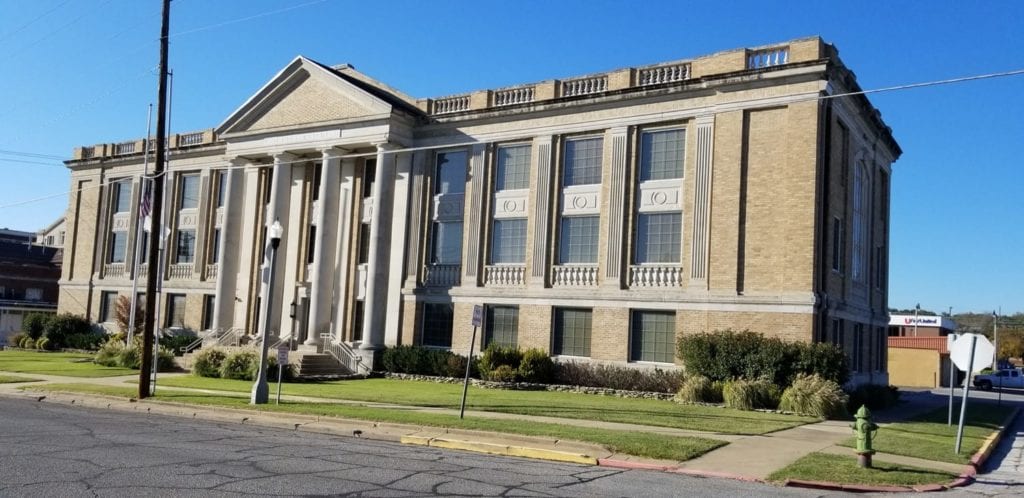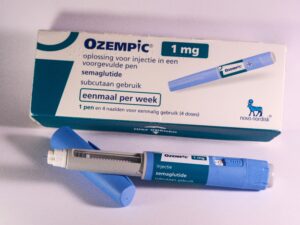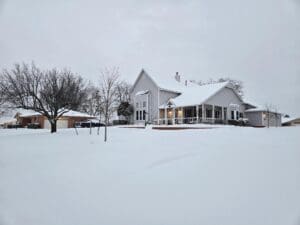A heated debate ensued at Monday morning’s Board of County Commissioners meeting over adjusting the way the highway funds are split between the districts. The two accounts, the Highway Unrestricted and the Highway Maintenance and Operations, are currently split according to the road mileage of each county before the recent redistricting, and the Board hoped to amend these numbers to reflect current road mileage numbers.
Newt Stephens, Commissioner of District 1, presented a plan that he praised as “simple and moderate,” accurately reflecting the road mileage and costs for those roads per district. Leon Warner, District #2’s Commissioner, disagreed, and presented his own plan with bigger changes, saying he felt it was more equal and fair.
Stephens’ plan would allot a mostly equal percentage of funds between districts, with each district sitting around 30 – 35% of the funds. Warner’s plan had more math, and gave each district $5,741 per mile, rather than focusing on the percentage being even. The Commissioners debated their plans, going over the numbers and what it costs to maintain the roads in their districts currently, and why their plan was superior.
Warner said he hasn’t been able to afford keeping all of District #2’s roads where he wants them to be, and that District #1 currently gets $11,000 per mile of road whereas Districts #2 and #3 get only $4,000.
Stephens replied that his roads are more worn and heavily traveled since they’re in high traffic areas, and need to be fixed more often. Warner’s rebuttal was that he would gladly pave all of his roads that are currently gravel if he could just afford it.
Warner felt his plan was fair, since each district would have an equal amount of funding per mile, but Stephens stated he felt like this plan was gouging District #1 of its much-needed funding, and if Warner needed to pave roads he should “save up for it.”
Warner said that materials in the other two districts usually end up costing up to 25% more, simply because of their locations, and therefore District #1 shouldn’t receive twice the money.
Stephens added he wasn’t trying to rock the boat, he was just implementing common sense and making minimal changes, to which Warner replied, “Just because it’s been that way doesn’t make it right.”
When asked to voice his opinion, Jarrod Whitehouse of District #3 said he respects both sides, but would like to do more homework before making a decision. Warner agreed this was a good idea, and no decision was reached. The account split will be brought back to the board at a later date.
Following its recommendation for approval from last Tuesday’s Creek County Planning Commission meeting, a mobile home park on South Hickory, pending a sale to applicant Don Lovy, was unanimously approved to be rezoned from agricultural to residential manufactured home.
The mobile home park, containing about 30 lots, and to be renamed Weathervane Park, has not been in compliance for years, and District #2 Creek County Commissioner Leon Warner mentioned most complaints about the park seem to all be about the thirty or forty years of history surrounding the park. Lovy assured he is working hard to bring the mobile park into compliance with the County, and District #1 Commissioner Newt Stephens recognized this, stating he appreciates this is being done now.
To bring the area into compliance, Lovy has already removed ten manufactured homes from the area and is currently working on fixing the water issues. The general concern over the area by the surrounding residents was that the park would increase in size, but it’s decreasing instead. Lovy added he’s excited about the possibilities and to continue moving forward bringing the park into compliance.
Two hot water tanks for the Sheriff’s office went out for bid within a week of each other and Deputy Sheriff Fred Clark appeared before the Board with bids for new ones. One of the inoperable tanks is located on the master side of the Creek County Justice Center and the other at the Juvenile Justice Center. Both tanks also failed in 2015 within a couple months of each other.
Sheriff Bowling mentioned that being at the end of the waterline can cause problems, typically sediment ones, for the water tanks at the centers.
Both hot water tanks were approved for purchase by the Board. Creek Environmental was awarded both bids for 100g hot water tanks with a quote of $16,782 for the CCJC and $13,680 for the Juvenile Center.










